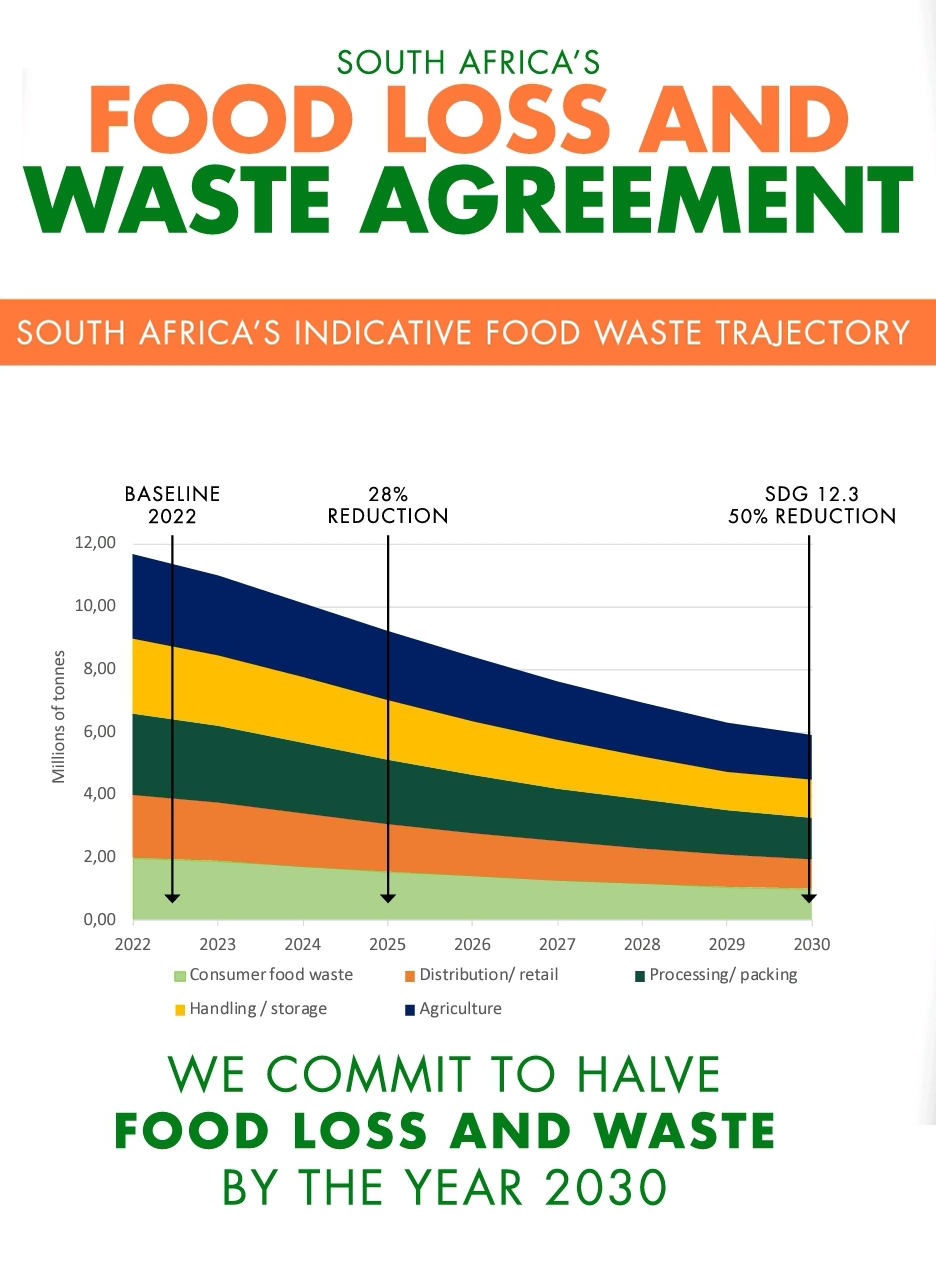CGCSA Drives Food Waste and Loss Prevention in South Africa
In South Africa, it is estimated that about 10 million tonnes of food is wasted each year, in a country where as many as 14 million people go to bed hungry every night. This monumental unnecessary waste cannot be allowed to continue, states the Consumer Goods Council of South Africa (CGCSA).
The CGCSA takes the issue of food loss and waste seriously given the level of food insecurity and hunger faced in the country, where about 60% of South African households are food insecure (that is, 30% are at risk of food insecurity and 31% are experiencing hunger). The food hunger and insecurity has been made even starker by the impact of Covid-19, which saw many households experiencing severe food shortages.
According to the CGCSA, reducing food loss and waste has taken an added urgency not only in South Africa but also across Africa.
In this respect, South African organisations have begun to take practical steps to reduce food loss and waste following the landmark launch of the South African Food Loss and Waste Initiative’s Voluntary Agreement on 29 September 2020.
The agreement is led by the CGCSA, in partnership with the national departments of Forestry, Fisheries & Environment; and Trade, Industry & Competition. The agreement commits food manufacturers and retailers to reducing food waste to achieve the United Nation’s Sustainable Development Goal (SDG) 12.3 goal to halve per capita global food waste by 2030 at the manufacturing and retail levels and reduce food losses along production and supply chains, including post-harvest losses.
Specifically, those signing the agreement committed themselves to:
- Work with retailers and brands to identify food waste and loss in their operations
- Identify how they can work with their partners to reduce food in areas of research and legislation
- Develop and implement strategies to address food waste and loss
- Partner with NGOs to re-distribute edible surplus food
- Use non-edible food to generate energy and compost and other useful products
- Ensure food safety is maintained at all levels

The voluntary agreement focuses on food waste minimisation (stopping it arising in the first place), and when food waste and surplus does arise, to identify solutions to eliminate food going to landfill.
According to Matlou Setati, Executive: Food Safety Initiative (FSI) at the CGCSA, as of the end of 2021, the number of signatories that had signed up were 72 (42 core signatories and 30 associate signatories). As at the end of May 2022, there are 81 signatories.
 “We appreciate the support from our local and international partners and funders whom through their support we are able to undertake additional activities to ensure we eventually reach the 2030 target. We are particularly pleased that through working group discussions, we have agreed that a food donation best practice guideline is essential. Ultimately, there is a need a legal framework to protect food donors which if enacted could see the donations and surplus food redistribution enhanced, for companies who still fear reputational damage through donations,” Setati says.
“We appreciate the support from our local and international partners and funders whom through their support we are able to undertake additional activities to ensure we eventually reach the 2030 target. We are particularly pleased that through working group discussions, we have agreed that a food donation best practice guideline is essential. Ultimately, there is a need a legal framework to protect food donors which if enacted could see the donations and surplus food redistribution enhanced, for companies who still fear reputational damage through donations,” Setati says.
The CGCSA has been finalising this best practice guidelines which will result in more surplus food that is still safe for human consumption being donated to needy people. Meanwhile, government departments are also reviewing relevant legislation to identify legislation that hinders or enables food waste minimisation, beneficiation and donation; while a tool for signatories to capture their food waste savings and donations has been tested and developed.
Concluding, Setati calls for more signatories to join the collective and show their commitment to reducing food waste, eliminating it from landfill and diverting and donating that which is still fit for consumption. “The more signatories have on board the stronger we are together in achieving the reduction target, fighting for food security, reducing environmental impact and saving money and resources,” she says.
For more information on the Food Loss and Waste Initiative, please visit: https://www.cgcsa.co.za/service-offering/food-safety-initiative/food-loss-and-waste/




